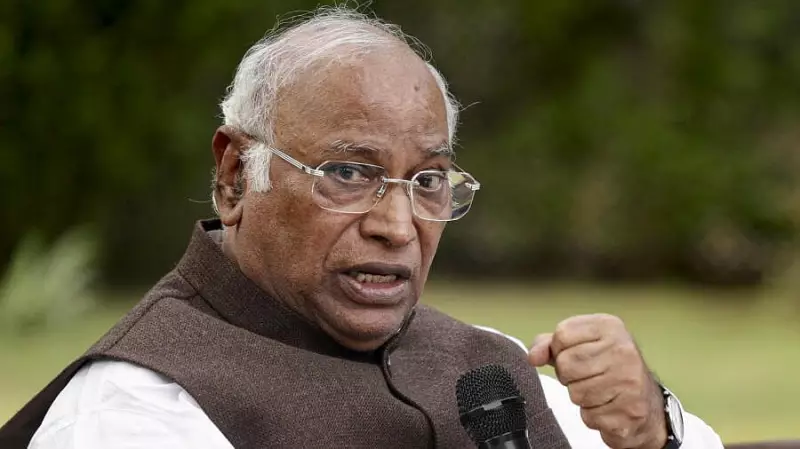
In a dramatic escalation of political hostilities, Congress President Mallikarjun Kharge has launched a blistering attack on the Rashtriya Swayamsevak Sangh (RSS), demanding a complete ban on the organization that serves as the ideological parent of the ruling Bharatiya Janata Party.
The veteran politician didn't mince words when he stated, "In my personal opinion, the RSS should be banned" during an exclusive interview that's set to create major ripples in Indian politics.
Why Kharge Wants RSS Outlawed
Kharge's condemnation stems from what he perceives as the RSS's fundamentally divisive nature. "Their ideology is different. They believe in dividing people on the basis of caste and religion," he asserted, pulling no punches in his criticism.
The Congress chief elaborated that the RSS's core philosophy runs completely counter to the inclusive, secular vision that the Congress party has championed for decades. His comments represent the most direct and forceful challenge to the RSS from a senior opposition leader in recent memory.
Political Earthquake in Making
This explosive statement comes at a crucial juncture in Indian politics, with general elections looming on the horizon. Kharge's unambiguous position sets the stage for a major ideological battle between the Congress and BJP-led NDA alliance.
The timing of this revelation is particularly significant as it:
- Sharpens the political discourse ahead of election season
- Clearly demarcates the ideological lines between major parties
- Potentially mobilizes both supporters and opponents of the RSS
- Reinforces Congress's commitment to secular politics
Background of the Controversial Organization
The RSS, founded in 1925, has long been a subject of intense political debate in India. While its supporters view it as a cultural organization promoting Hindu values and national unity, critics have consistently accused it of fostering communalism and religious polarization.
This isn't the first time the organization has faced calls for a ban. The RSS was temporarily banned on three previous occasions - after Mahatma Gandhi's assassination in 1948, during the Emergency in 1975, and following the Babri Masjid demolition in 1992.
Kharge's statement is likely to trigger strong reactions from across the political spectrum, with BJP leaders expected to mount a vigorous defense of the organization that forms the backbone of their ideological framework.
As the political temperature rises, all eyes will be on how this controversy unfolds and what impact it might have on the broader political landscape of the world's largest democracy.






